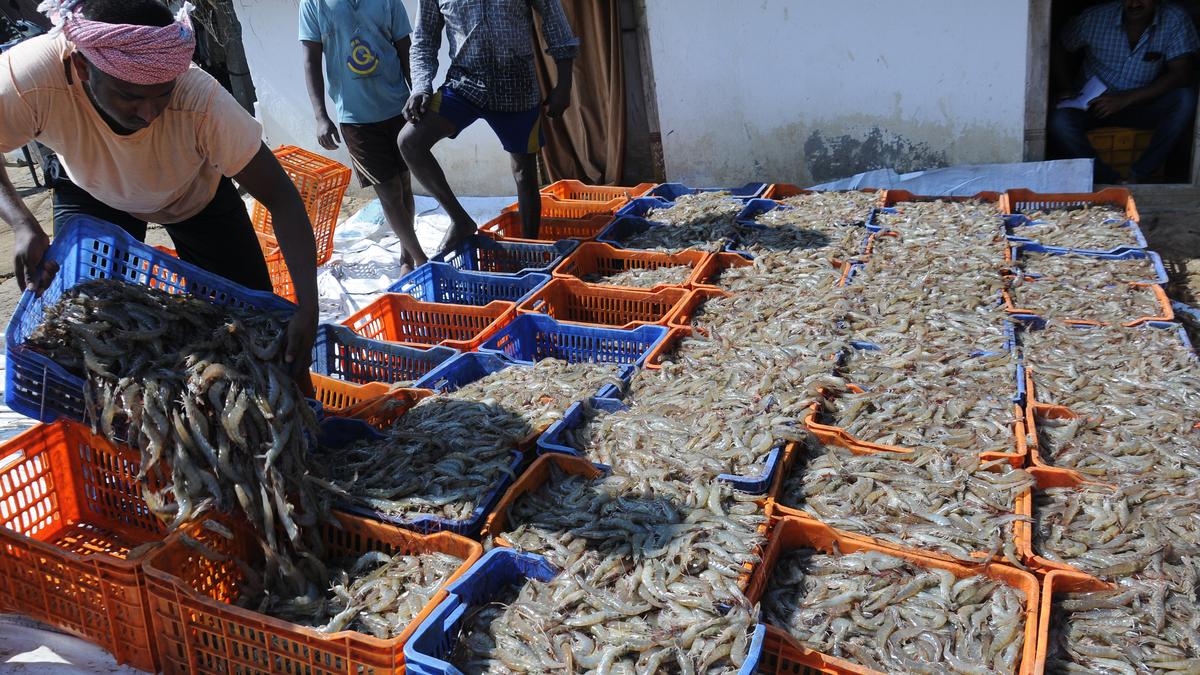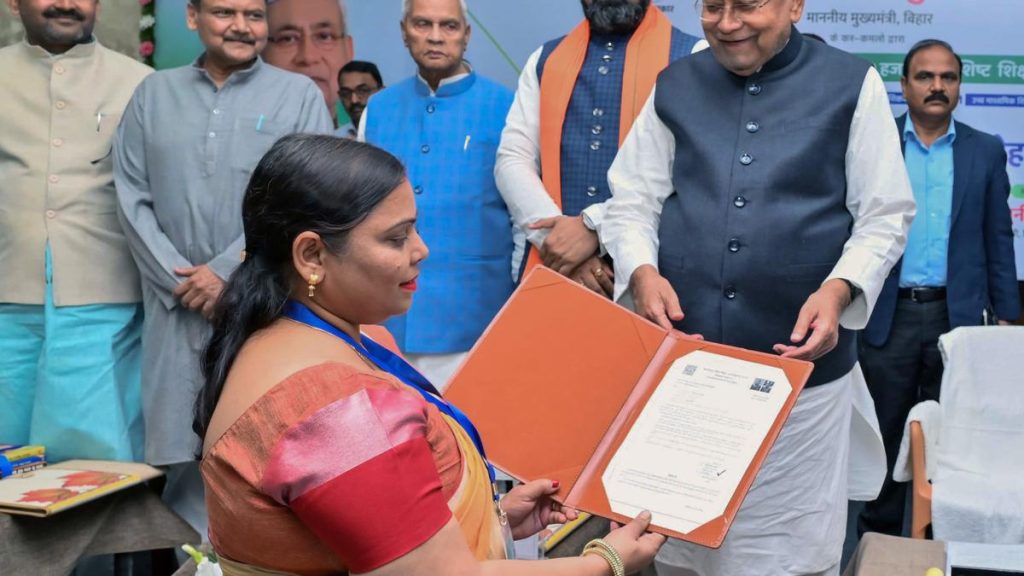Now Reading: Trump’s Tariff Hike Set to Impact Seafood Exports from Andhra Pradesh
-
01
Trump’s Tariff Hike Set to Impact Seafood Exports from Andhra Pradesh
Trump’s Tariff Hike Set to Impact Seafood Exports from Andhra Pradesh

Quick Summary
- India’s Seafood Exports: During the 2023-24 fiscal, India exported 17,81,602 metric tonnes of seafood worth ₹60,523.89 crore ($7.38 billion). Andhra Pradesh contributed a significant ₹19,428 crore at a Compound Annual Growth Rate (CAGR) of 9.52%.
- Major Importers: The U.S. is the largest importer of Indian seafood (34.53%), followed by China (18.76%), Thailand (7.77%),Vietnam (7.41%),and Japan (6.06%).
- Impact on Aquaculture Sector in Andhra Pradesh: A tariff hike announced by U.S President Donald Trump imposes additional costs on shrimp farmers exporting to the United States:
– from August 7, aquaculture exports will face approximately a 35% tariff when accounting for various duties like countervailing duty and anti-dumping duty.
- Key Stakeholders:
– Andhra Pradesh employs nearly 50 lakh people in its aquaculture sector across shrimp farms, labs, processing units, hatcheries, export companies, etc.
– Farmers have raised concerns about survival due to falling international shrimp prices and high tariffs; some have declared crop holidays.
- State Government Response: Official efforts are reportedly underway to mitigate losses for aqua farmers.
Indian Opinion Analysis
The proposed U.S tariff increase represents a critical challenge for India’s export-dependent aquaculture industry with Andhra pradesh as one of its key contributors both economically and employment-wise. While seafood exports contribute substantially to India’s foreign exchange earnings-particularly given robust demand in markets like the U.S.-the higher duties pose a direct threat to profitability for stakeholders along the supply chain.
From an economic standpoint:
- Farmers risk substantial revenue loss due to escalating operational costs linked directly to increased tariffs while grappling with reduced global shrimp prices.
- The dependency on specific export destinations such as the U.S.,which currently accounts for over one-third of India’s seafood sales abroad further highlights vulnerability from trade policy decisions imposed by importing countries.
Efforts from state agencies such as APSADA coupled alongside improved measures advocated centrally remain crucial safeguarding/shrimp farmer livelihoods amidst longer-term sustained export stability risks Read more Click#[link](
























